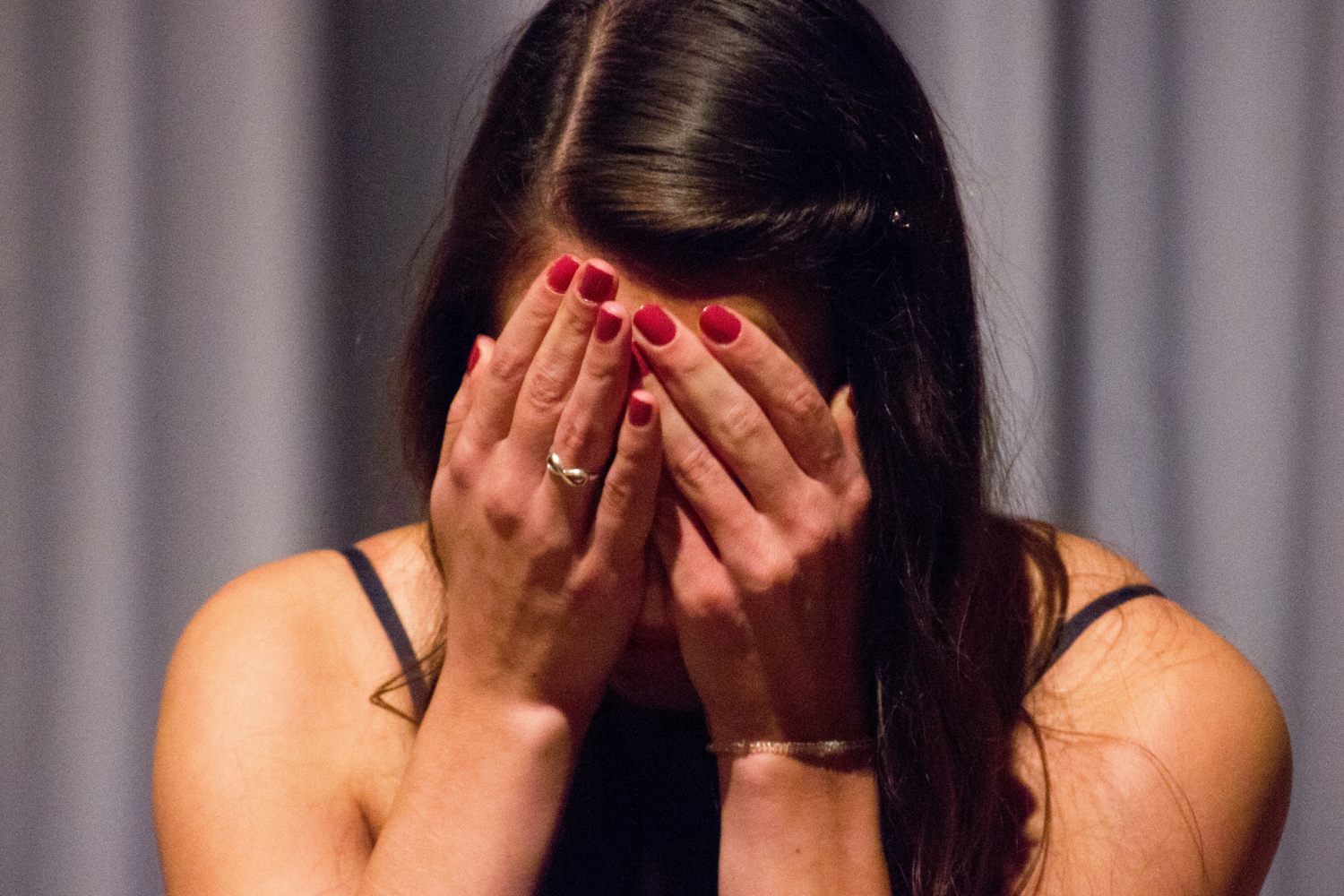Let's be real, growing up, many of us received some pretty mixed messages about sexuality. One minute we're told our bodies are natural and beautiful, and the next we're being taught that certain desires or feelings are shameful or "dirty." No wonder so many of us end up with complicated feelings about pleasure!
I spent years wrestling with sexual shame myself. Every time I felt desire or curiosity, that little voice in my head would start whispering that I was being "too much" or that "good people don't think about these things." Sound familiar?
The journey to unlearning sexual shame isn't always straightforward, but it's incredibly freeing. Today, I'm sharing my experience of breaking free from sexual shame, and how you might begin your own journey toward sexual positivity.
Understanding Sexual Shame: What's Really Going On?
Sexual shame isn't something we're born with, it's learned. It comes from messages we absorb from family, religion, culture, and media. These messages get internalized until they feel like our own beliefs.
Dr. Emily Nagoski, sex educator and author of "Come As You Are," explains that "shame about sexuality is particularly toxic because sexuality is such an integral part of being human" (Nagoski, 2021). When we feel ashamed about something so fundamental to who we are, it impacts our entire sense of self.
Sexual shame can show up in different ways:
- Feeling guilty after experiencing pleasure
- Difficulty communicating desires with a partner
- Being unable to fully relax during intimate moments
- Judging yourself for your fantasies or desires
- Avoiding conversations about sex entirely
Recognizing these patterns is the first step toward change. For me, it was noticing how I'd immediately shut down any conversations about sex, even with close friends or partners. I was so afraid of being judged, or worse, judging myself.
The Real Cost of Sexual Shame
Here's something not enough people talk about: sexual shame doesn't just affect your sex life. It can ripple through your entire wellbeing.
When I was deep in my shame spiral, it affected my relationships, my self-confidence, and even my physical health. I was constantly tense, afraid to fully express myself, and disconnected from my own body.
Research shows I wasn't alone in this experience. Studies have linked sexual shame to:
- Lower relationship satisfaction
- Higher rates of anxiety and depression
- Decreased sexual satisfaction
- Difficulty with intimacy (not just the physical kind)
- Higher likelihood of engaging in risky sexual behaviors
That last one might seem counterintuitive, but it makes sense when you think about it. When we're ashamed of something, we're less likely to learn about it or talk about it, including how to engage with it safely.
My Journey to Unlearning Sexual Shame
1. Getting Curious About the Origins
My first real breakthrough came when I started examining where my shame actually came from. Some of it traced back to my religious upbringing, where sex was rarely discussed except in terms of what not to do. Some came from media messages that simultaneously hypersexualized women while shaming them for being sexual beings.
I started asking myself: Whose voice is that in my head? Is it actually mine?
Often, I realized I was carrying other people's beliefs, beliefs I hadn't actually chosen for myself.
2. Educating Myself with Reliable Resources
Knowledge really is power, especially when it comes to sexuality. I dove into books, podcasts, and online resources created by sex educators and therapists.
Learning about the science of sexuality helped me see that my desires and experiences were completely normal. It wasn't just reassuring, it was revolutionary.
Sex therapist Dr. Laurie Mintz points out that "accurate sexual information is one of the strongest antidotes to sexual shame" (Mintz, 2018). The more I learned, the less power shame had over me.
3. Finding My Community
Shame thrives in isolation. When we think we're the only ones experiencing something, it's easy to believe there's something wrong with us.
Finding people I could talk openly with about sexuality, without judgment, was game-changing. For some people, this might be close friends. For others, it might be online communities or support groups specifically focused on sexual healing.
4. Working with My Body, Not Against It
Sexual shame doesn't just live in our minds, it lives in our bodies too. I noticed I was constantly tensing up, disconnecting from physical sensations, or feeling anxious when touching or being touched.
Mindfulness practices and somatic (body-based) exercises helped me reconnect with my body. Simple practices like:
- Mindful breathing during moments of tension
- Progressive muscle relaxation
- Sensate focus exercises (with or without a partner)
- Dance or movement that helped me feel present in my body
These weren't specifically sexual practices, but they helped me feel more at home in my physical self, which translated to greater comfort with my sexuality too.
5. Rethinking Language and Reframing Thoughts
The words we use matter. I started noticing how often I used language that reinforced shame, calling certain desires "bad" or using euphemisms instead of accurate terms for body parts.
Cognitive behavioral techniques helped me challenge and reframe these thoughts. When I caught myself thinking "I shouldn't want this" or "This is wrong," I'd pause and ask:
- According to whom?
- Is this belief helping or hurting me?
- What would I say to a friend who told me they felt this way?
Gradually, I replaced shame-based language with more neutral or positive words.
Creating New, Shame-Free Narratives
Unlearning isn't just about removing negative beliefs, it's about actively creating new, healthier ones. For me, this meant developing a personal sexual philosophy that aligned with my authentic values.
I asked myself questions like:
- What role do I want sexuality to play in my life?
- What values are important to me in my sexual experiences (e.g., respect, pleasure, connection, curiosity)?
- How can I honor both my desires and my boundaries?
This wasn't about adopting someone else's ideas about what sexuality "should" be. It was about finding what felt genuine and affirming for me.
The Role of Partners in Healing Sexual Shame
If you're in a relationship, partners can be powerful allies in unlearning sexual shame, or they can unintentionally reinforce it.
Communication is absolutely essential here. My healing accelerated when I found the courage to talk openly with my partner about my shame and what I needed to feel safe.
A few things that helped:
- Setting the stage for conversations outside the bedroom, when we weren't already being intimate
- Using "I" statements to express my feelings without blame
- Being specific about what helped me feel safe and comfortable
- Remembering that my partner isn't a mind reader, they wanted to support me but needed guidance
Not every partner will respond perfectly, and that's okay. The right partner will be patient and willing to learn alongside you.
When to Seek Professional Support
Sometimes, sexual shame runs deep, particularly if it's connected to trauma or deeply ingrained religious or cultural messages. There's absolutely no shame (ironically!) in seeking professional help.
Sex therapists, trauma-informed therapists, and some spiritual counselors specialize in helping people work through sexual shame. They can offer personalized guidance and support that goes beyond what self-help strategies can provide.
The Ongoing Practice of Self-Compassion
Here's the truth: unlearning sexual shame isn't a one-and-done process. Even years into my journey, I occasionally notice old shame patterns trying to creep back in.
The difference now is that I meet these moments with compassion rather than judgment. I recognize the old pattern, gently redirect my thinking, and remind myself how far I've come.
Self-compassion researcher Dr. Kristin Neff reminds us that "self-compassion involves treating yourself with the same kindness, concern, and support you'd show to a good friend" (Neff, 2015). This approach is particularly powerful when working with shame of any kind.
Final Thoughts: Freedom Awaits
Unlearning sexual shame is one of the most profound gifts you can give yourself. It opens the door to more authentic relationships, greater pleasure, and a deeper connection with your whole self.
Remember that this journey looks different for everyone. There's no "right way" to explore your sexuality or heal from shame. The key is moving at your own pace and honoring what feels right for you.
If you're just beginning this journey, be gentle with yourself. Small steps still move you forward, and every bit of shame you release creates space for joy and authenticity to grow in its place.
Want to make your journey even more exciting? I've handpicked some amazing toys and goodies at Hello Nancy that'll add extra sparkle to your intimate moments.
Here's a little secret, use the code 'dirtytalk' for extra 10% off!
FAQ: Common Questions About Sexual Shame
How do I know if I'm experiencing sexual shame?
Signs include feeling guilty after sexual pleasure, difficulty communicating desires, judging yourself for fantasies, or avoiding sex altogether. Physical symptoms might include tension, anxiety, or disconnection during intimate moments.
Can I unlearn sexual shame while still maintaining my religious or cultural values?
Absolutely. Many people find ways to honor their spiritual or cultural traditions while developing a healthier relationship with sexuality. The key is distinguishing between core values and shame-based messages that may have been attached to those traditions.
How long does it take to unlearn sexual shame?
This varies widely depending on the individual and the depth of the shame. For some, significant shifts happen in months; for others, it's a longer journey. Remember that progress isn't always linear, and every step forward matters.
References:
Mintz, L. (2018). Becoming cliterate: Why orgasm equality matters—and how to get it. HarperCollins.
Nagoski, E. (2021). Come as you are: The surprising new science that will transform your sex life (Revised ed.). Simon & Schuster.
Neff, K. (2015). Self-compassion: The proven power of being kind to yourself. William Morrow Paperbacks.







 Add 794.40؋ to get Free Gift
Add 794.40؋ to get Free Gift



